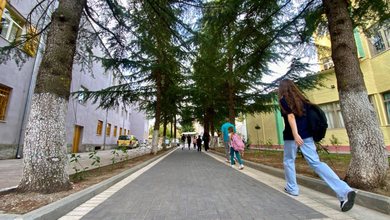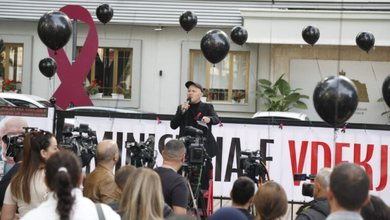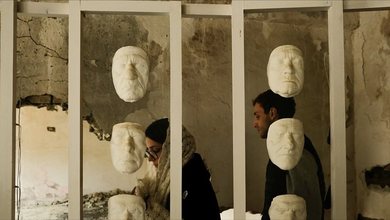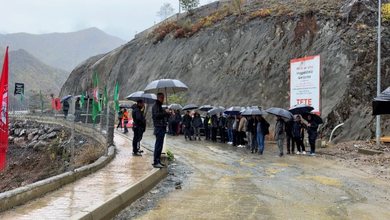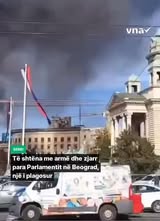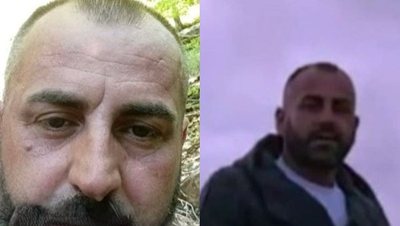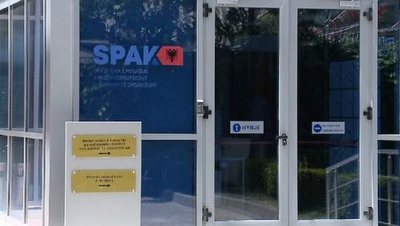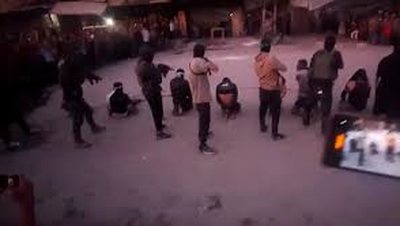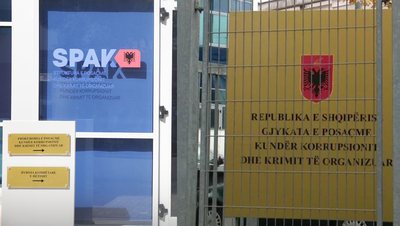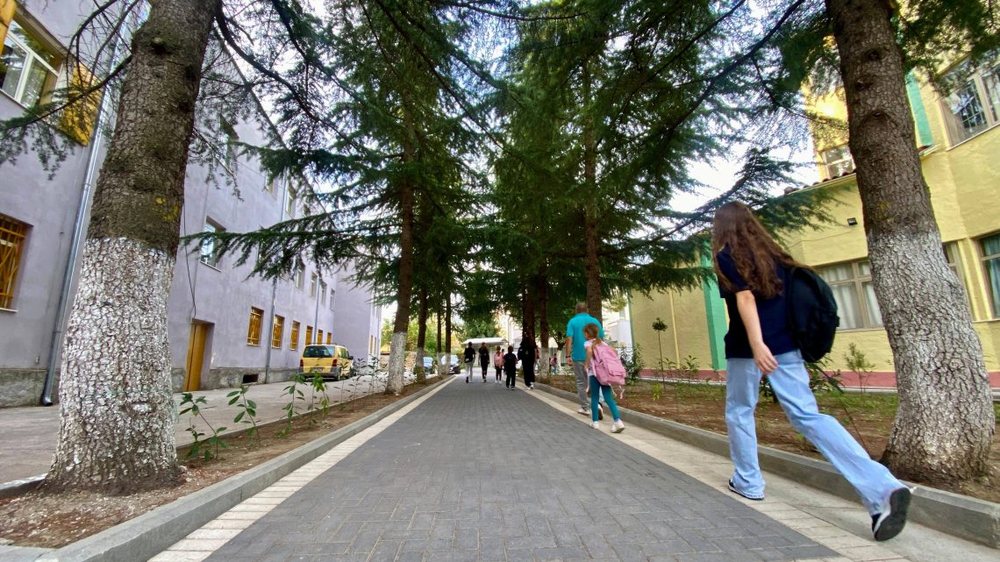
From insults in the schoolyard to humiliations on social networks, bullying is becoming a widespread phenomenon among Shkodra children, while the police deny that there are any reported cases.
In the courtyard of a 9-year-old school in Shkodra, an 11-year-old girl stands aside, her eyes on the ground. She has begun to fear school, not the books, but the words. Words that kill her self-confidence every day.
Her father, known for his violence against his mother, continues to harass her even after the separation. Every time he leaves school, he waits for her, insults her, and humiliates her in front of her classmates. The children imitate his language, call her the same names and insults he uses, and exclude her from games. The girl, once an excellent student, is now silent and has mentioned suicide several times.
In another neighborhood of the city, a 13-year-old boy faces daily ridicule from his peers because of his mentally ill father.
“They call him by his father's name, they tease him, they even physically hit him,” a social worker said. “He dropped out of school to help his mother who is raising four children alone,” she explained.
Meanwhile, in a private school, a 12-year-old girl from the Roma community, enrolled with sacrifices from her grandmother, was expelled from the group due to prejudice, after it was rumored that she "had parasites in her hair."
Despised and excluded, she began to react as a bully herself, trying to defend herself through aggression.
"The grandmother justified it because the daughter had said several times that she would jump from the third floor of the school," says a parent who sends her children to the same school.
The sad stories of these children are not isolated cases. According to psychologists and social workers in the northern city, one in five children in Shkodra face bullying in school settings.
"Bullying is no longer random; it is a phenomenon that repeats itself and changes form," says psychologist Suela Domnori, who works at the Shkodra Local Education Directorate.
"Today it is not just ridicule, but social exclusion, imitation of false models and silent pressure," she added.
However, an official response to BIRN, the Shkodra Local Police Directorate, stated that in recent years “no reported cases of bullying have been identified.”
The epidemic of online bullying
School bullying is the intentional and repeated behavior of a student or group of students to hurt, humiliate, or exclude a peer physically, verbally, or emotionally.
Bullying is often expressed through insults, ridicule, spreading rumors, publishing humiliating photos or videos, and intentional exclusion from online groups.
Online bullying in many cases has more serious consequences, as it spreads quickly, reaches a wide audience, and can occur at any time, even outside of the school environment.
"Today children say: 'I'd rather be raped than become a meme,'" said psychologist Suela Domnori.
"The biggest fear is public humiliation online, because on the internet, shame is not hidden and circulates without borders," she added.
Even psychologist Altin Nika, who works every day with 9th grade and high school students, says that bullying has become part of everyday life, especially on social networks.
"The most widespread form is what happens online, where a comment or a photo can destroy a teenager's reputation and this denigration does not stay within the school but has a 100-fold audience," he said.
According to Nika, schools have become spaces of social competition, not knowledge.
"Children are no longer measured by knowledge, but by status," he explained, adding that young people are competing over who has the most expensive phone, who dresses best, who has the most followers on Instagram, while emphasizing that this silent competition fuels bullying and creates false hierarchies that damage character formation.
Nika warns of the long-term consequences of this reality.
"Bullying affects a child's personality, because character is formed in those years," he said, adding that as a result it causes "isolation, withdrawal and feelings of inferiority."
"Studies show that many people with criminal tendencies or aggressive behavior have experienced oppression or trauma in childhood, either in the family or at school," Nika emphasized.
School safety
Although stating that there have been no reported cases of bullying, Shkodra Police told BIRN that community policing officers are in schools and their surrounding areas every day, collaborating with principals, teachers and parents to prevent violence.
As part of the "Youth Safety" program, in collaboration with the Ministry of Education and Sports, officers conduct awareness-raising classes for students on violence in schools and trafficking of minors, bullying and its cyber forms, violent extremism and radicalism.
"The goal of this program is to raise awareness among young people about the potential risks they may encounter and to empower them to make safe decisions for the future," an official communication states.
"Collaboration between schools, police and the community is the most effective way to prevent bullying and violence in educational settings," the police added.
Part of this cooperation are also school safety officers, who play a key role in the early reporting of cases of violence and conflict between students.
They serve as a bridge between students, teachers, and law enforcement institutions, maintaining daily contact with psychologists and school administrators.
Currently, 32 security officers are engaged in the Shkodra district, regularly monitoring the premises of 9-year and high schools, preventing conflicts and reporting any suspicious situations to the relevant State Police structures.
According to psychologist Suela Domnori, the cooperation of security officers with educational structures has been essential in managing tense situations and in the early identification of cases of bullying.
She blames the lack of permanent psychologists in every school as one of the reasons why many cases are not treated in a timely manner.
“In some schools, one psychologist covers several institutions,” Domnori said. “Intervention is often done when the damage has been done,” she explained.
According to experts, children learn from the way adults communicate, how they forgive, how they react to injustice. When there is violence in the family, it is carried over into the classroom. When there is a lack of dialogue at school, it explodes on social networks.
Lawyer Edlira Bylo, specializing in social issues, adds that bullying is often linked to unsafe family environments.
“School is the mirror that reflects the problems that start at home,” she said. “Children who experience violence, poverty or lack of attention then show it in the way they behave with others,” Bylo added.
According to Bylos, the lack of early intervention and sometimes the reluctance of parents to speak up allows the phenomenon to spread. “Bullying does not disappear with punishment, but with recognition and education.”
Psychologists also point out that the nature of the bully and the victim is often linked to internal emotional factors. The bully is usually a product of violence, lack of love or attention in the family, while the victim tends to withdraw into himself, develop insecurity and fear of social interaction.
"The bully seeks control to compensate for the lack of personal security, while the victim seeks escape," explains attorney Bylo, emphasizing that bullying is not a problem of just one institution, but is a consequence of the lack of connection between family, school, and society.
Psychologist Altin Nika agrees, emphasizing that the solution lies in healthy control and constant communication:
“From experience, when serious events happen, it is the parents who get the last word, at points that are often irreversible,” he said. “Children need to be asked, every day,” Nika added, stressing that they need to feel heard.”/BIRN/



